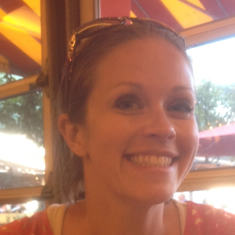As a middle school literacy coach whose job is to provide job-embedded professional development, I am fortunate to find myself in classrooms a good amount of the day. My stance has been that the more I’m in classrooms, the more opportunities teachers and I have for shared experiences from which we can have honest conversations.
During a recent coaching cycle, Isabelle—an accomplished seventh-grade teacher—and I had been working on her weekly lesson planning. She was confident about determining and mapping out her minilessons for multiple days at a time, and now she was pushing herself to be more intentional and organized with practice time. We experimented with different lesson-planning tools as well as classroom management strategies to help students be more independent, during writing workshop in particular. We worked together every day to refine these practices, and I was deeply embedded in Isabelle’s classroom.
On this chilly fall morning, Isabelle and I had planned to confer with two students each and then spend the rest of the time conferring together with other individuals or pulling small groups, based on the needs that presented themselves during class. We had gone so far as to jot down on the daily agenda on the whiteboard the names of students who were guaranteed a conference in workshop that day, and had in place strategies to help other students maintain (or, let’s be honest, find) independence, so we could confer, and they could work, uninterrupted.
Eager to chat with Enrico, I grabbed my notebook and headed toward his desk. On my way over, I noticed that Adam and Ahmed were tossing pencil toppers back and forth at each other. I reached out my palm, and they sheepishly put the toppers into my hand and got back to work. By that time, I had noticed that Reese and Angelica were giggling loudly and trying to get Helen’s attention. I just had to nip that in the bud if we were going to accomplish anything.
“Ladies, let’s review your checklists, please,” I whispered as I knelt between them. As the minutes ticked by, Reese, Angelica, and I reviewed their potential goals for the day and jotted down on sticky notes what they were going to try that day as writers.
I heaved myself off the floor and hurried over to Enrico, who at that point had already read over his draft multiple times. By that time, seven minutes had passed. Apologizing, I pulled up beside him, my notebook on my lap, ready to chat. Just as I opened my mouth, Ben shot his arm up in the air and started wiggling in the telltale bathroom dance. Perplexed and unable to read my lips as I repeated, Just go, he loudly stage-whispered across the room, “WHAT? Can I GO, Mrs. Taylor?”
By that point, we were 10 minutes into practice time, and I had not yet had a substantive conversation with the two children I had promised would have my full attention. As soon as I had hustled Ben out of the room, I took a deep breath, knelt by Enrico again, and looked him in the eye.
“Enrico, I am so sorry that I fell off our routine,” I apologized. “I have a really bad habit of allowing myself to get off track, and that was really unhelpful for you today. I promise you have my full attention.”
I recognized in that moment that I was so embedded in the work of this one classroom, and so comfortable with the students, that I had retreated into a bad habit that I had in my own classroom. In the past, no matter the routines and expectations my students and I had in place, I had tended to micromanage behavior, which destroys any chance students have at developing independence. Now I was modeling that micromanagement for a colleague.
For the rest of the class period, I forced myself to be mindful of the management goals Isabelle and I had set—we want to build independence with her writers—and let go of the little distractions going on around me. Were there still distractions? Absolutely. Did we need to fine-tune some of our ideas (like having all students write down goals on sticky notes from the get-go)? Definitely. But I knew that in sticking to the routine we were working on, we were moving the needle on expectations of independence.
At the end of class, I pulled Isabelle aside. “Isabelle, I have to tell you, I struggled today with sticking to the routine we’ve been working on with the kids,” I admitted.
Isabelle breathed a sigh of relief and touched my arm. “Okay, so it wasn’t just me? I couldn’t get around to everyone I’d planned.”
“I had a hard time getting started,” I said. “I really experienced what you’ve shared with me in being sidetracked by behavior. When we meet next, I would love to reflect on what we’ve both experienced.”
There’s being in the trenches, and there’s getting buried in the trenches. As a coach, I’m discovering that I need to get my hands dirty while having a heightened level of self-awareness. When I’m deeply embedded in classrooms, there will be days like I had with Enrico. As a coach, I’m not a teacher without flaws—and being sincere and transparent about my struggles has gotten me a long way in building trust—but I am a teacher providing a model. Had I let myself off the hook by not reflecting with Isabelle, I would have sent the message that our goals for student independence were not attainable. I also would have missed a powerful opportunity to model the reflection and self-awareness that are the ultimate outcomes for the coaching experience.


